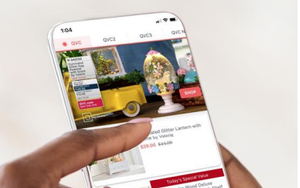
When QVC shoppers got an email promoting
handbags, they may have thought the subject line was cute, maybe even a play on baby talk. But many read it as a direct insult, and were astounded the company would repeat a cruel jibe that has been
hurled at Asian women for decades. While QVC responded with an apology email, many customers were still shocked. QVC didn’t respond to our requests for a comment, so Marketing Daily
asked Helen Cho, a global brand strategy and creative leader who’s built diverse teams and brand-defining campaigns for Fortune 100 companies, to weigh in.
Marketing Daily: Other
brands, including H&M and Zara, have made similar blunders. How do screw-ups like this happen?
Helen Cho: It’s possible, with the need for speed to market, in the age of AI
and social posts with intentional misspellings, that this one just slipped by. Or you could chalk it up to a generational divide since the alleged origin of the phrase dates back to the film "Full
Metal Jacket," circa 1987. However, multiple people likely saw and approved this offensive post -- on International Women’s Day, no less.
Marketing Daily: Asian
stereotypes persist, particularly those that demean women. How can marketers better combat them?
Cho: Racist, sexist, objectifying, dehumanizing, imperialistic tropes are no joke. They
feed into pervasive stereotypes of Asian women that have real-life consequences. Look at the 2021 Atlanta spa shootings.
Creating a cool team background for AAPI Heritage Month is not the
answer.
[Instead,] nurture and promote diverse talent. Insist that your ad agency hires diverse talent to work on your brand. Ensure that there is proper oversight by people with the wisdom to
reflect your brand's values. Cast diverse talent in non-stereotypical roles. Use female directors. If companies and marketers want to get serious about combating racism and sexism, how about more
women of color in the C-suite and board rooms?
Marketing Daily: This particular bit of ugliness has been kicking around since the Vietnam War and probably longer. I do believe
many people might be oblivious to its origins. There’s a lively back-and-forth in QVC’s community blog, and a recurring theme is “I didn’t know this was offensive
–explain it to me.” They want to know. What’s wrong with expecting Asians, or any insulted group, to have to explain a bigoted remark?
Cho: I’ve endured slurs
like this since I was a kid. I could write a book on comebacks. And I reserve the right to get angry, ignore, fire back or take a moment. It’s solely my prerogative whether I respond at all.
If I’m spending my time, effort and emotional capital to inform or educate, then I either value our relationship or am well aware that not saying something also comes at a heavy cost (usually
me lying in bed at 3 a.m. thinking of all the things I should’ve said). But it's never OK to expect someone from a marginalized group to do the labor of educating. There are books for that.

Marketing Daily: What
can companies do to prevent mistakes like this from happening?
Cho: Diversity, equity and inclusion initiatives help companies hire and nurture diverse teams that can prevent a
recurrence. Recent polls state that a majority of Americans support DEI initiatives. Yet a far-right movement has proposed anti-DEI legislation in at least 20 states. The demonization of critical race
theory, the spread of book bans and the erasure of teaching historical racism are directly linked to a campaign to abolish DEI.
Marketing Daily: Many companies are actively dialing back
their DEI efforts. What will the impact of that be?
Cho: We’ve seen a dismaying corporate rollback of DEI initiatives and roles that were created after the protests
following the murder of George Floyd. We see what continues to happen when companies or ad agencies don’t have diverse staff creating their marketing and advertising or providing proper
oversight.
Smart companies and marketers understand that there are proven benefits to nurturing diverse teams. Instead of folding, companies should speak out, fight back and lean into
the fact that diversity serves creativity, innovation and the bottom line. Scott Page explains this well in his book,“The Diversity Bonus.”
Marketing Daily:
You’ve said you don’t think DEI cutbacks are as much about lack of funding as lack of will. Explain that.
Cho: We fund what we value. And where there’s a will,
there’s a way.
Marketing Daily: What makes for a good apology if something like this happens to your brand?
Cho: A heartfelt apology starts with a
timely and full acknowledgment of what went wrong. Zero gaslighting. Don’t mention intention unless you want to appear self-serving. The harm was done, intentional or not. Accountability
matters. Showing remorse is good. It will feel more meaningful if you can recognize why this happened and detail the steps you’re taking to ensure it won’t recur. Get creative about
reparations.